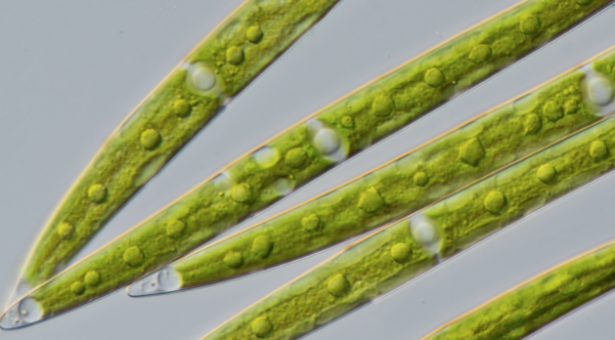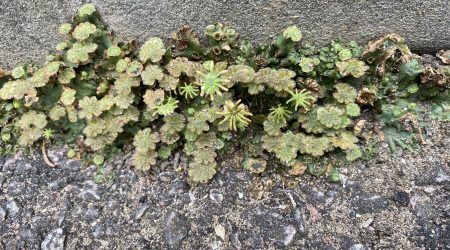Ancient alga knew how to survive on land before it left water and evolved into first plant

A team of scientists led by Dr Pierre-Marc Delaux of the John Innes Centre has solved a long-running mystery about the first stages of plant life on earth.
The team of scientists from the John Innes Centre, the University of Wisconsin – Madison and other international collaborators, has discovered how an ancient alga was able to inhabit land, before it went on to evolve into the world’s first plant and colonise the earth.
Up until now it had been assumed that the alga evolved the capability to source essential nutrients for its survival after it arrived on land by forming a close association with a beneficial fungus called arbuscular mycorrhiza (AM), which still exists today and which helps plant roots obtain nutrients and water from soil in exchange for carbon.
The previous discovery of 450 million year old fossilised spores similar to the spores of the AM fungus suggests this fungus would have been present in the environment encountered by the first land plants. Remnants of prehistoric fungus have also been found inside the cells of the oldest plant macro-fossils, reinforcing this idea.
However, scientists were not clear how the algal ancestor of land plants could have survived long enough to mediate a quid pro quo arrangement with a fungus. This new finding points to the alga developing this crucial capability while still living in the earth’s waters.
Dr Delaux and colleagues analysed DNA and RNA of some of the earliest known land plants and green algae and found evidence that their shared algal ancestor living in the Earth’s waters already possessed the set of genes, or symbiotic pathways, it needed to detect and interact with the beneficial AM fungus.
The team of scientists believes this capability was pivotal in enabling the alga to survive out of the water and to colonise the earth. By working with the fungus to find sustenance, the alga showed a clear evolutionary advantage and was selected to thrive in a very different and seemingly infertile environment.
Dr Delaux said:
“At some point 450 million years ago, alga from the earth’s waters splashed up on to barren land. Somehow it survived and took root, a watershed moment that kick-started the evolution of life on earth. Our discovery shows for the first time that the alga already knew how to survive on land while it was still in the water. Without the development of this pre-adapted capability in alga, the earth could be a very different place today.
“This finding has filled a gap in our collective knowledge about the origins of life on earth. None of this would have been possible without the dedication of a world-wide team of scientists including a tremendous contribution from the 1KP initiative led by Gane KS Wong .”
Professor Jean-Michel Ané, from the University of Wisconsin said:
“The surprise was finding the mechanisms in algae which allow plants to interact with symbiotic fungi. Nobody has studied beneficial associations in these algae.”
This research was funded by the Biotechnology and Biological Sciences Research Council (BBSRC) and the US-based National Science Foundation.


